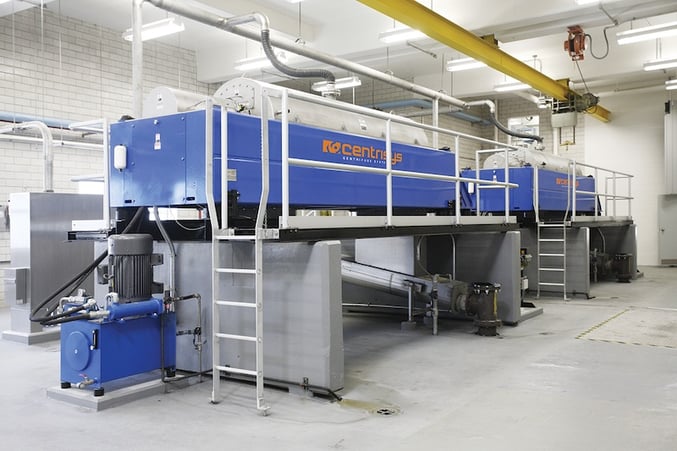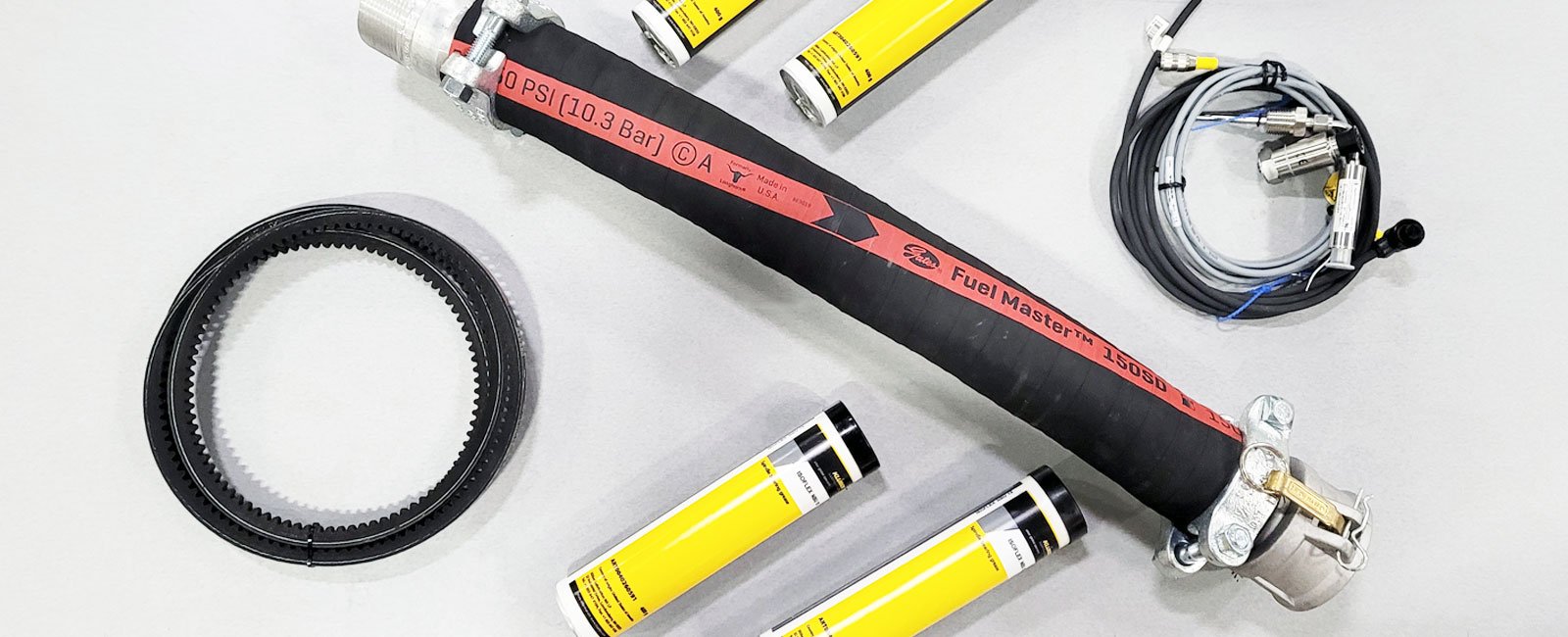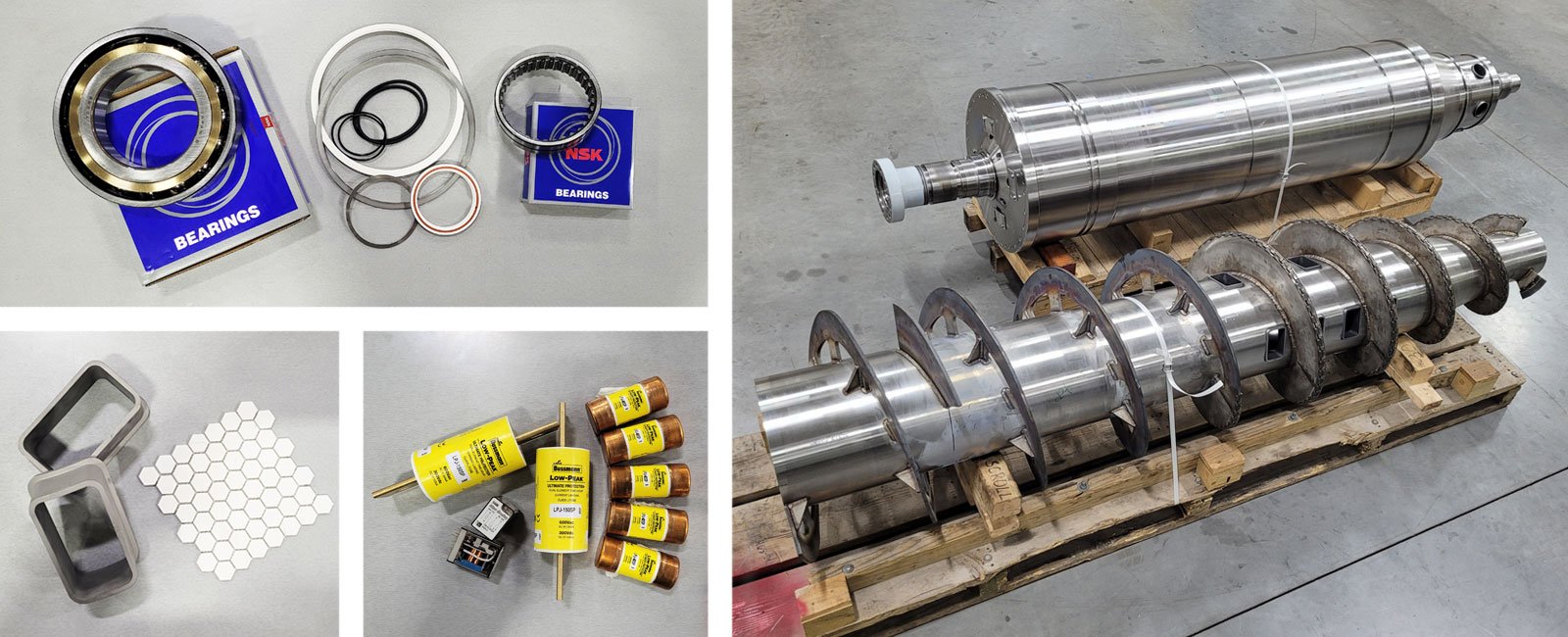What Decanter Centrifuge Spare Parts Should You Keep On Hand?

Uptime is critical for decanter centrifuges. Although performing regularly scheduled centrifuge service and maintenance can keep the centrifuge running at optimal performance, help avoid unnecessary standstill and reduce costly repairs, this is not the only way to reduce downtime. The key to maximizing centrifuge uptime is to have critical centrifuge spare parts at your plant. These on-hand spare parts eliminate shipping lead times and allow operators to replace the centrifuge parts themselves.
Please Call Us at +1 (262) 425-8783 or Click Here to Start
Decanter Centrifuge Spare Parts to Keep in Stock
Centrisys/CNP suggests evaluating three items to make the best decision for your centrifuge spare parts inventory:
- How long can you afford to be down?
- What is your replacement parts budget?
- Do you have the storage capacity for unprocessed sludge while the centrifuge is being repaired?
Your answers affect what centrifuge replacement parts Centrisys/CNP recommends that you have on hand. Since 1987, we have provided centrifuge equipment, repair, and maintenance. We understand the importance of investing in a quality spare parts inventory to reduce unplanned downtime and unforeseen costs. After the first repair, we recommend a detailed centrifuge parts wear assessment to help us determine what spare parts are best to keep in stock at your plant and within your budget.
Most centrifuge components from Centrisys/CNP are available for overnight delivery. Our 20,000 square foot warehouse has over $9 million in stock centrifuge parts ready for quick delivery; however, having critical spare parts on-site can increase your uptime.

Minimum On-Hand Spare Parts for Decanter Centrifuges
Having an inventory of centrifuge spare parts at your plant saves you time and money. You do not have to pay for expedited shipping. You do not have to pay for an on-site service technician who cannot service your centrifuge as they wait for that unexpected, but needed, spare part to arrive at the plant. To prevent unnecessary downtime, Centrisys/CNP always recommends having the following decanter centrifuge replacement parts on-hand:
- OEM centrifuge specific lubricants
- Filters and belts
- Sensors and cables (temperature, vibration, or speed sensors)
- Lube system components (sensors, switches, valves)
- Feed pipe

Additional Spare Parts for Decanter Centrifuges
The more pressing that centrifuge uptime is for your facility, the more centrifuge parts you should have on hand to avoid halting your process. Consider your ability to replace centrifuge parts on-site. Do you have space, employees, and equipment to make centrifuge repairs? Not all facilities are capable of full on-site repair as this requires qualified operators and specific tools, like cranes, lifting devices, pullers, and bearing heaters. Evaluate your facility to see if you can stock the following decanter centrifuge replacement parts:
- Rotating assembly bearings and seals.
- Machined wear parts (retainer bearing plates and seal rings): Replacing the seal ring when the bearings are replaced ensures that the new seal surface is smooth.
- Wear components (feed nozzles, tiles, or discharge nozzles): If the tungsten carbide components exceed 60-70% of the material thickness, these components need to be replaced before the solids wear completely through these parts.
- Control panel components (fuses, VFDs, or PLCs): There are 100s of electrical parts in a control panel. It’s a risk if one of these parts needs to be replaced and there isn’t a spare in your plant's inventory.
- Electric motors: These are especially important when a non-standard motor is specified for the centrifuge. These are custom ordered, creating longer lead times, possibly delaying the centrifuge repair.
- Ancillary parts (lube system, polymer system, pumps, rotors, flow meters, conveyors, screws/liners, gearboxes, etc.).
- Spare scroll, spare rotating assembly, or full spare centrifuge: For full redundancy, many facilities choose to have a spare rotating assembly or even a full spare decanter centrifuge to maximize uptime.
Centrifuges require a full rebuild typically after 15,000 hours of operation. With a spare rotating assembly or a redundant centrifuge, you eliminate the need for a rush repair, eliminate expedited shipping for replacement parts and eliminate overtime rates by requiring a service technician on-site during non-standard hours.
If your facility is not capable for full on-site repair, make sure you use the right decanter centrifuge repair facility. Our “11 Considerations for Selecting a Decanter Centrifuge Repair Facility” blog helps you select a centrifuge repair facility so you have the best service support.
A Couple of Last Points to Consider
- Do you have the optimum storage space conditions for the centrifuge spare parts? For example, having spare centrifuge bearings on hand saves time, but if they rust in storage they become useless.
- Budget for a larger inventory of spare parts if a centrifuge is installed in a remote location, as shipping may be problematic and can extend your downtime. In extreme cases, weather or extraordinary global events can make air, land, or sea shipping difficult, unreliable, and expensive.
Contact Centrisys/CNP and we will partner with you to select the ideal centrifuge spare parts inventory for your decanter centrifuge and process expectations.